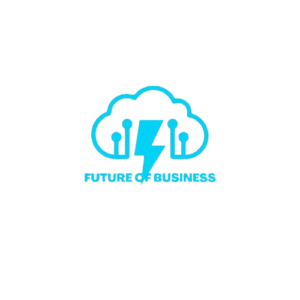What a High Ticket Closer Really Does
A high ticket closer is not just another salesperson trying to push a product. This role focuses on building strong, trust-based conversations that help prospects make confident decisions on premium offers. Instead of chasing leads, they typically work with warm prospects who are already interested in the service or product, but need clarity before making a large investment. The high ticket closer steps in as the bridge between interest and commitment, guiding potential clients toward seeing the value of their decision. Businesses turn to them because they know how to handle sensitive, high-value discussions that can easily make or break a deal. Unlike traditional salespeople who rely on volume, closers work on precision. Their effectiveness comes from mastering communication and knowing how to guide prospects without pressure, creating a win-win outcome for both the client and the business.
The Skills That Separate a High Ticket Closer from Average Sales Reps
What truly sets a high ticket closer apart is the depth of skills required to excel. One of the most important skills is building trust in a short amount of time, often within the span of a single phone or video call. Active listening is a non-negotiable, as it allows closers to hear what the prospect is not saying as much as what they openly share. They also rely heavily on emotional intelligence to detect hesitation and address it respectfully, instead of bulldozing through objections. Objection handling, in fact, is one of the most valuable tools in their arsenal, turning “I’m not sure” into confident agreements. Beyond that, closers understand the psychology of decision-making, which enables them to guide conversations strategically without manipulation. This balance of empathy and authority creates an environment where prospects feel safe making large financial commitments. Ultimately, these advanced skills elevate the closer above average sales representatives.
Industries That Depend on High Ticket Closers
The demand for a skilled high ticket closer spans multiple industries, each requiring their expertise to handle premium offers. In coaching and consulting, closers help potential clients see how transformative programs can impact their business or personal life. Real estate is another significant area where high-value deals require finesse, especially when clients are considering properties worth hundreds of thousands or millions. Luxury investments, including cars, yachts, and high-end memberships, also lean on closers to ensure buyers feel supported in their choices. In the software and tech space, closers are instrumental in securing contracts for enterprise-level solutions where decision-makers must weigh costs against long-term value. Health, fitness, and personal development programs also rely heavily on closers to show prospects how investing in themselves can create lasting change. These industries thrive when clients are guided by experts who can break down complex value propositions. The presence of a closer often makes the difference between a hesitant “maybe” and a confident “yes.”
The Financial Potential of Becoming a High Ticket Closer
One of the biggest attractions to this career is the earning potential. Because closers typically work on commission, their income is directly tied to the size of the deals they close. In many cases, they can earn anywhere from 10% to 20% commission on premium offers, which means a single sale could result in a payout larger than an entire month of traditional sales. High ticket products and services—ranging from $5,000 to $100,000 or more—provide substantial rewards for skilled professionals. Instead of needing to sell dozens of small items, a closer can focus on fewer, higher-value deals. This makes the role not only financially rewarding but also scalable over time. Many closers build a portfolio of clients across different industries, creating multiple income streams. The financial freedom this path offers appeals to those who want performance-based pay without limits. When executed effectively, the career of a high ticket closer can lead to long-term financial independence.
Benefits of the Career Include:
- High earning potential from each deal closed
- Opportunities to work remotely and serve global clients
- Flexible schedule with performance-based income
- Growth into coaching, mentoring, or agency ownership
- Direct involvement in premium industries with motivated buyers
What It Takes to Break Into the Field
Breaking into the world of high ticket closing requires preparation and dedication. Many professionals pursue specialized training programs designed to teach advanced sales psychology and real-world closing strategies. Mentorship plays a critical role, allowing new closers to learn directly from those already successful in the field. Certifications can help validate skills, but practical experience through role-playing and practice calls often proves more important. Those new to sales may feel intimidated, but credibility can be built even without prior experience by focusing on results and creating strong relationships. Networking is another powerful tool; many closers connect with coaches, consultants, and entrepreneurs looking for sales support. Building a personal brand through social media, professional platforms, and referrals can also open doors quickly. With consistent effort, aspiring closers can establish themselves in this competitive yet rewarding industry.
Common Challenges High Ticket Closers Face
Despite the rewards, being a high ticket closer comes with challenges that require resilience. One of the most common hurdles is dealing with rejection, which is inevitable in any sales role but can feel heavier when the deals are high-value. Maintaining emotional balance helps closers bounce back and stay motivated. Another challenge lies in striking the right balance between empathy and persuasion, ensuring clients feel understood but also guided toward a decision. Because many closers work on commission-only roles, income fluctuations are another reality that requires financial discipline and planning. Ethical selling is also a constant focus—closers must avoid slipping into manipulative tactics while still driving results. The pressure to perform can be intense, especially in competitive industries. However, those who embrace these challenges see them as opportunities to grow stronger and more capable. The ability to handle setbacks with professionalism defines the best in the field.
The Future of High Ticket Closing in the Digital Era
The sales landscape is evolving, and the role of a high ticket closer is adapting with it. Remote closing has become a dominant trend, with video calls replacing in-person meetings for many industries. This shift has allowed closers to serve clients from anywhere in the world, expanding opportunities significantly. Technology and AI tools are increasingly being used to qualify leads, automate scheduling, and provide data-driven insights, but they do not replace the human connection a closer provides. Instead, these tools act as support systems that make closers more effective. The digital era has also opened doors to global clients, allowing professionals to work beyond local markets. As businesses continue to launch premium coaching, consulting, and educational programs, the need for closers will only grow. Those who embrace digital platforms and stay adaptable will remain in high demand. The future is bright for those ready to combine timeless human skills with modern tools.
Key Insights to Thrive as a High Ticket Closer
Thriving as a high ticket closer requires a commitment to constant growth. Adaptability is critical, as sales strategies that work today may need refinement tomorrow. Building long-term relationships with clients creates a sustainable career instead of relying on one-time transactions. Investing in personal development through courses, reading, and mentorship ensures ongoing improvement. Consistency is another key factor, as the most successful closers are those who perform at a high level repeatedly, not just occasionally. Staying competitive also means developing a strong mindset, since confidence is contagious in sales conversations. Over time, professionals who combine skill, mindset, and strategy stand out in the marketplace. This balance of qualities creates an unstoppable force in the world of high ticket closing.
FAQ
What is a high ticket closer?
A professional who specializes in closing premium offers, guiding prospects through high-value sales conversations with trust and expertise.
How much can a high ticket closer earn?
Earnings vary, but many make commissions ranging from 10%–20% of deals, which can amount to thousands per sale.
Do I need prior sales experience to become a closer?
Not necessarily. Many start with little to no experience but invest in training, mentorship, and consistent practice.
Can high ticket closing be done remotely?
Yes. Most closers now work online through video calls, allowing them to serve global clients.
Which industries hire high ticket closers?
Industries like coaching, consulting, real estate, luxury products, and software regularly hire closers to handle premium offers.
Takeaway
Becoming a high ticket closer is a career path that combines skill, psychology, and adaptability to create extraordinary opportunities. It offers financial rewards, freedom, and the chance to work with some of the most innovative industries today. While challenges exist, those willing to master communication, emotional intelligence, and resilience can thrive in this growing field. The demand for professionals who can confidently guide clients through high-value decisions will only increase in the digital era, making this role both relevant and future-proof.











